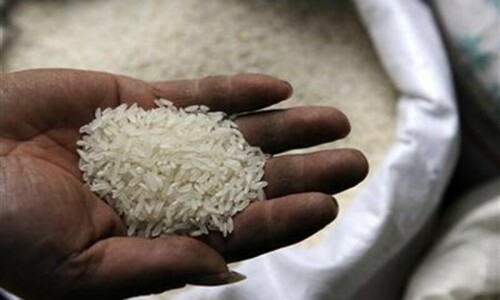CRUDE is on a losing streak. The risk premium has evaporated and the market focus is back to the demand side of the equation.
A number of factors are impacting.
Oil prices fell sharply on Friday after the Wall Street Journal reported Saudi Arabia has agreed to a partial ceasefire in Yemen. Once the news was confirmed by a Yemeni government official, Bloomberg reported; futures declined as much as 2.9 per cent in New York.
The UAE, an active partner in the war against Houthis had already signalled that it intends to scale back its presence, with the last soldier leaving the Yemeni territory by the year-end. The possibility of the cessation of hostilities in Yemen reduced the prospect of a wider conflict involving Iran, taking off in the process, much of the geopolitical premium built into the crude market prices.
A week before the Saudi announcement, the Houthi rebels fighting the Kingdom led war in Yemen had announced a unilateral halt to drone and missile attacks targeting Saudi Arabia. The success in hitting on Abqaiq stabilisation plant and the Khurais oil field had given the Houthis some added leverage. And they wanted to capitalise.
The strikes had halved Saudi Arabian production and made the point clear; Saudi oil infrastructures are not invincible. This resulted in an immediate price spike of nearly 20pc. With the Saudi agreement to a partial ceasefire and the prospect of regional war receding, oil markets took the clue and softened.
As per a Financial Times report, Saudi oil output has rebounded to more than 8 million barrels per day (bpd). Some other reports say it has crossed the 11.3m bpd mark. “We can detect that Saudi Arabia’s output has been steadily rising,” data and satellite monitoring company Genscape’s global director Devin Geoghegan said. Total Saudi production, Genscape said, was slightly above 8m bpd as of the start of the week. The same number was also given to the FT by two people briefed by officials in the kingdom. Recovery in Saudi output, quicker than most had anticipated, helped the oil prices soften further by taking off the fear premium further.
Crude markets also deepened their latest losses after the Energy Information Administration reported a 2.4m barrel build in the US crude oil inventories for the week to September 20.
Concerns about the growing China-US trade spat also continues to weigh on the markets. Oil prices slid Thursday, after the US President Donald Trump while speaking to the UN General Assembly, criticised China on a number of issues. This outburst poured cold water over hopes of a deal between China and the United States, anytime soon.
Also on Wednesday, the United States imposed sanctions on a number of Chinese tanker owning firms and executives for transporting Iranian oil, in violation of the US sanctions on Iran.
As per some reports, China, the world’s largest crude buyer continues to import relatively small amounts of oil and petroleum products from Iran, despite the US sanctions. It took 788,000 tonnes of crude from Iran in August, compared with a monthly average of 2.4m tonnes last year, Chinese customs data show. China slammed the new US sanctions, demanding the Trump Administration to “immediately correct the wrong approach.” A Chinese foreign ministry spokesman Geng Shuang insisted; China’s dealings with Iran are in line with international law “and must be respected.”
The new US sanctions would not only complicate the already difficult talks to end the US-China trade war but could also impact the global crude consumption pattern adversely.
The International Energy Agency (IEA) may have to cut its growth estimates for global oil demand for 2019 and 2020, should the global economy weaken further, Fatih Birol, the executive director of the Paris-based IEA underlined on Friday.
The IEA trimmed in August its global oil demand growth estimates for 2019 and 2020 to 1.1m and 1.3m bpd respectively. “It will depend on the global economy. If the global economy weakens, for which there are already some signs, we may lower oil demand expectations,” good, old friend, Fatih Birol told Reuters on the sidelines of the World Knowledge Forum in Seoul.
He pointed to the faltering economic growth of China, the “engine of the (global) demand growth” until recently. China’s economic growth slowed to 6.2pc in the second quarter, its weakest pace in at least 27 years, dragged down by weaker demand amid heightened trade tensions with the United States.
Oil markets are under siege from various quarters.
Published in Dawn, September 29th, 2019













































